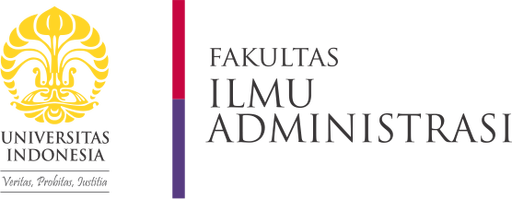Apa Itu Ilmu Administrasi?

Banyak yang beranggapan bahwa Ilmu Administrasi tidak lepas dari perihal surat-menyurat dan ketik-mengetik. Bahkan istilah administrasi juga lekat dengan hal yang sifatnya remeh dan prosedural pemberkasan.
Lantas, sebenarnya definisi apa yang tepat untuk menjelaskan Ilmu Administrasi?
Di Amerika Serikat kita sering mendengar istilah The Biden-Harris Administration, The Barack Obama Administration, dll. Apakah itu berarti Joe Biden, Barack Obama, dan jajarannya hanya melakukan kegiatan surat-menyurat dan ketik-mengetik dalam pemerintahannya? Tentunya tidak.
Ilmu Administrasi sendiri mempelajari 5 pilar keilmuan, yaitu Kebijakan, Tata Kelola, Inovasi, Institusi, dan Budaya. Kelima pilar tersebut saling berkaitan dan Ilmu Administrasi mempelajari antar-kaitan tersebut.
Ada Jurusan Apa Saja di Ilmu Administrasi?
Ilmu Administrasi Negara
Mahasiswa pada program ini dipersiapkan agar menjadi SDM yang mampu memahami perkembangan tata kelola pemerintahan serta mampu menganalisis beragam kebijakan yang dibutuhkan untuk menghadapi tantangan lokal maupun global.
Ilmu Administrasi Niaga
Mahasiswa dalam program ini dipersiapkan untuk menghadapi tantangan di era disrupsi melalui pengembangan pengetahuan dan keterampilan pada tiga domain yaitu: tata kelola (governance), inisiasi bisnis baru (entrepreneurship/ start up business) dan pengelolaan (managing) organisasi serta usaha kecil, menengah, dan atas.
Ilmu Administrasi Fiskal
Mahasiswa dalam program ini dipersiapkan untuk memahami kebijakan dan administrasi perpajakan, baik secara mikro maupun makro. Selain itu, mahasiswa juga dibekali dengan kemampuan untuk mengadaptasi dan menganalisis isu perpajakan baik di tingkat nasional maupun internasional.
Prospek Kerja
Ilmu Administrasi Negara
- Aparatur Sipil Negara (ASN/PNS)
- Pegawai BUMN/BUMD
- Konsultan/Peneliti di NGO Nasional/Internasional
Ilmu Administrasi Niaga
- Praktisi Bisnis skala Kecil, Menengah atau Besar
- Konsultan Bisnis (SDM, Keuangan, atau Pemasaran)
- Periset di Bidang Organisasi dan Administrasi
- Inisiator Usaha Pemula (Startup), dll.
Ilmu Administrasi Fiskal
- ASN (Direktorat Jenderal Pajak, Bea Cukai, Badan Kebijakan Fiskal, dan Otoritas Pajak Daerah)
- Praktisi Perpajakan (Konsultan Pajak, Tax Analyst)
- Akademisi (Dosen dan Peneliti) dan lainnya
Apa Saja yang Kamu Pelajari
di Jurusan Ilmu Administrasi?
Adapun mata kuliah yang akan kamu pelajari di Fakultas Ilmu Administrasi Universitas Indonesia ialah sebagai berikut:
Adm. Negara
- Kebijakan Publik
- Pelayanan Publik
- Digital Governance
- Otonomi Daerah
- Manajemen SDM Sektor Publik
- Pengadaan Barang/Jasa Pemerintah
- Manajemen Strategis Sektor Publik
dan lainnya
Adm. niaga
- Pengelolaan Modal Manusia
- Tata Kelola Perusahaan
- E-Commerce
- Kepemimpinan dan Transformasi
- Organisasi
- Inovasi dalam Organisasi
- Studi Kelayakan Usaha
- Kewirausahaan, Negosiasi Stratejik
- Digital Marketing
- Manajemen Lintas Budaya
- Pemasaran Sosial
- dan lainnya.
Adm. fiskal
- Investigasi dan Penyidikan Pajak
- Kepabeanan dan Cukai
- Laboratorium Perpajakan
- Pajak Daerah dan Retribusi Daerah
- Pajak Internasional
- Pajak Penghasilan (PPh)
- Pajak Pertambahan Nilai dan Pajak Penjualan atas Barang Mewah (PPN & PPnBM)
- Pajak Properti
- Pemajakan atas Bisnis dan Industri Tertentu
- Peradilan Administrasi Pajak
- Sistem dan Prosedur Perpajakan
- dan lainnya
Google FAQ
Seputar pertanyaan berkaitan dengan Ilmu Administrasi dan FIA UI yang sering muncul di mesin pencarian Google
Ilmu Administrasi sendiri mempelajari 5 pilar keilmuan, yaitu Kebijakan, Tata Kelola, Inovasi, Institusi, dan Budaya. Kelima pilar tersebut saling berkaitan dan Ilmu Administrasi mempelajari antar-kaitan tersebut.
Ilmu Administrasi Negara/Publik, Ilmu Administrasi Niaga/Bisnis, Ilmu Administrasi Fiskal/Pajak
Mulai dari ASN, Pegawai BUMN/BUMD, Konsultan, Praktisi Bisnis, Periset, Akademisi, hingga inisiator Startup
S.I.A (Sarjana Ilmu Administrasi)
Mulai dari 5 Juta keatas. Peluang yang lebih untuk diterima sebagai PNS, Konsultan Pajak, Startup, dll.
Standar 4 tahun. Namun bisa lebih cepat hingga 3.5 Tahun.
Bisa jika lolos seleksi CPNS. Adapun sekarang mulai banyak formasi yang spesifik dibuka untuk lulusan Ilmu Administrasi Negara, Niaga, dan Fiskal.
Fakultas Ilmu Administrasi Universitas Indonesia
Ada. Namun spesifik kepada matematika statistik untuk menunjang penelitian, tidak belajar matematika secara umum.
S.I.A (Sarjana Ilmu Administrasi)
